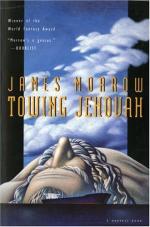|
This section contains 2,460 words (approx. 9 pages at 300 words per page) |

|
FOUNDED: 1879 C.E.
RELIGION AS A PERCENTAGE OF WORLD POPULATION: 0.24
Overview
Jehovah's Witnesses were known as Bible Students until 1931. In 1870 their founder, Charles Taze Russell, an Allegheny, Pennsylvania, businessman, had started a study group that became a congregation. Russell was influenced by members of the Advent Christian Church and an independent Second Adventist, George Storrs (1796–1879). Later Russell drew most of his "end-times" teachings from Nelson Barbour (1824–1906), a former disciple of William Miller.
Jehovah's Witnesses deny the Trinity, believe that hell is the grave, teach that only 144,000 elect will receive heavenly immortality, and assert that the rest of saved humanity will live eternally on earth. The Witnesses have frequently been in conflict with other religions and secular governments. They suffered persecution under Nazism and Communism, have been banned in many countries, and were mobbed repeatedly in the United States from 1940 through 1943.
History
In...
|
This section contains 2,460 words (approx. 9 pages at 300 words per page) |

|


